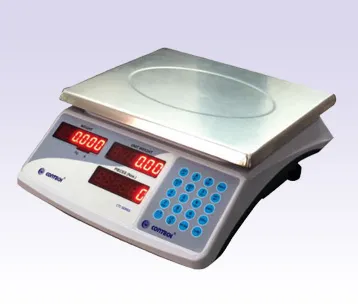This blog article discusses how to use scales to calculate backhaul. A method for calculating backhaul using a truck weigh scale is also mentioned in the article. You can buy various scales as per your requirement through https://www.aaaweigh.com/setra-super-count-digital-counting-scale-2926.html.

Truck weigh scales are a great way to make sure your shipments are arriving at their destination on time. By checking the weight of your packages before you send them, you can avoid any potential problems. Here is a list of what to look for when inspecting truck weigh scales:
-The scale should be accurate and able to handle large loads.
-It should be easy to read and understand.
-The markings should be legible.
-The scale should have a sturdy construction.
A truck weigh scale can be a valuable tool in your backhauling operations. You can purchase truck weigh scales via https://www.aaaweigh.com/truck-scales/all-truck-scales.html.
Here are three reasons why you might want to use one on your truck:
1. To ensure that the load you’re hauling is within the legal limit.
2. To keep track of your inventory.
3. To stay organized and know what each load weighs.
There are a few things you need to know before using a truck weigh scale to measure your freight. First, the weight of the cargo is measured on an actual truck, not on the scale. Second, the truck weigh scale can only read in pounds and kilograms, not in metric tons or pounds per square inch. Third, the scale should be calibrated regularly to ensure accurate readings. Fourth, truck weigh scales are most accurate when used in conjunction with a backhaul calculator to calculate the weight of your cargo.
The main difference between a truck weigh scale and a regular weighing scale is that a truck weigh scale can only read in pounds and kilograms, not in metric tons or pounds per square inch. This is because trucks are typically measured in terms of their GVWR (Gross Vehicle Weight Rating), which is the total combined weight of the vehicle and its contents. A regular weighing scale can also measure in kilograms, but it can also read in pounds if you provide it with the correct conversion factor.
When using a truck weigh scale to measure your freight, make sure that it’s properly calibrated by taking it to a certified calibration facility.